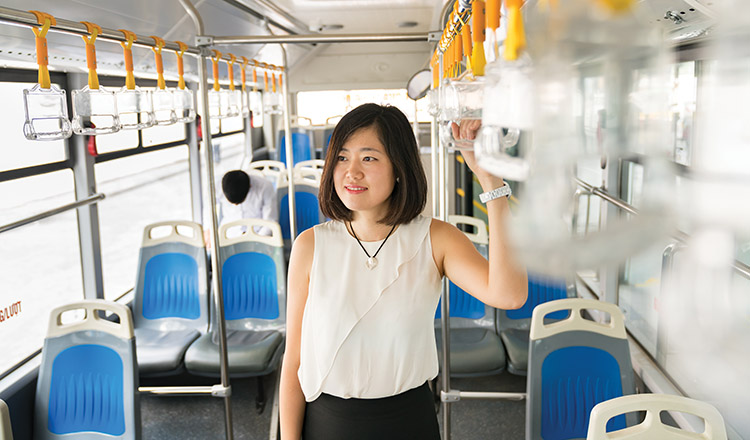While much of Jung Eun (Jen) Oh’s (MS M’07, PhD CE’08) commitments at World Bank Group focus on transportation projects, the crux of her work involves sustainable development. “It’s finding the best way of using public resources equitably to increase the overall output of an economy, ensure sustainability, and support economic growth,” she says. “It was the linkage of real life that drew me in.”
That real-life component has taken her around the world as a senior transport specialist for one of the most well-known international financiers of capital programs in developing countries. In places such as Ukraine and Liberia, Oh has tackled the complex needs of financing and building roads, railways, inland waterways, and public transport systems. The challenges go beyond funding and engineering to environmental and social impacts and institution building.
“We have various kinds of projects,” she says. “Our financing is being used to build the equivalent of the state highway and mass transit systems in the United States, and we have to ensure that they are designed with safety issues in mind. We work with the departments of transportation to create a sustainable system for adequate allocation of funding. If you don’t maintain it, the impact on economic development is very limited.”
In 2015, Oh began managing World Bank’s transport portfolio in Vietnam. Some of her work includes advancing Ho Chi Minh City’s first Bus Rapid Transit (BRT) system. The hope is that the BRT system, integrated with other public transportation, will cut down on energy consumption, harmful emissions, and accidents in a city famous for massive motorcycle traffic jams and daylong rush hour that regularly make international news.
Kien Doan (PhD CE’13) partners with Oh and World Bank as a transport expert for part of Ho Chi Minh City’s government. “They not only finance our main BRT line 1 project but also help us to improve the effectiveness of the BRT corridor,” Doan says. “They help the city to strengthen its internal human resources to make sure we can handle the projects properly and prepare for ones in the future.”
Investment needs exceed the available financing, so Oh stresses that prioritization is key. “We think through the impact on the environment, society, and vulnerable groups like the poor and elderly,” she says. “We make sure the money goes to the right project, that the technical aspects of it are done right, and that it’s well maintained and well used once it’s done. That’s the main chunk of my job. We don’t only do projects. We also discuss quality and new innovation and technology with the governments that we assist.”

